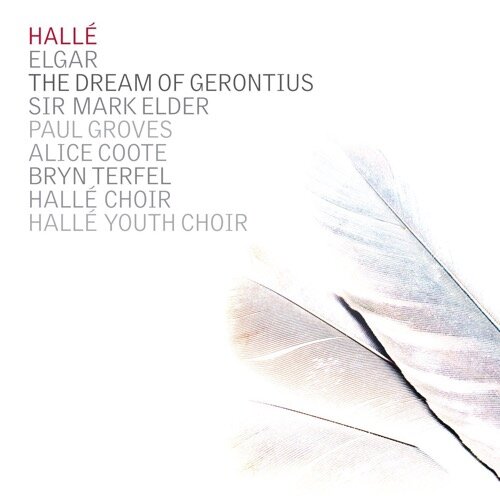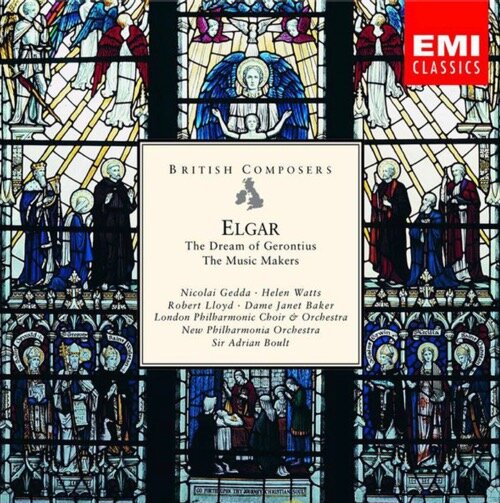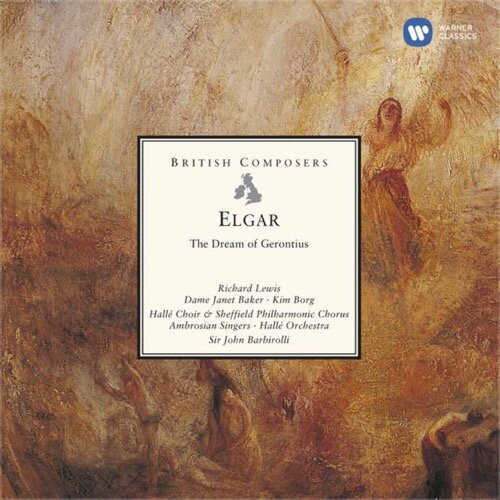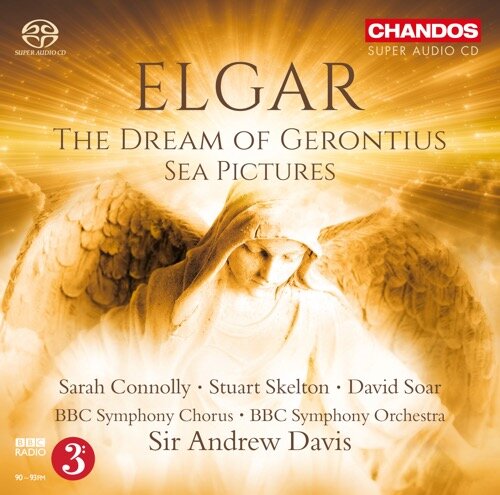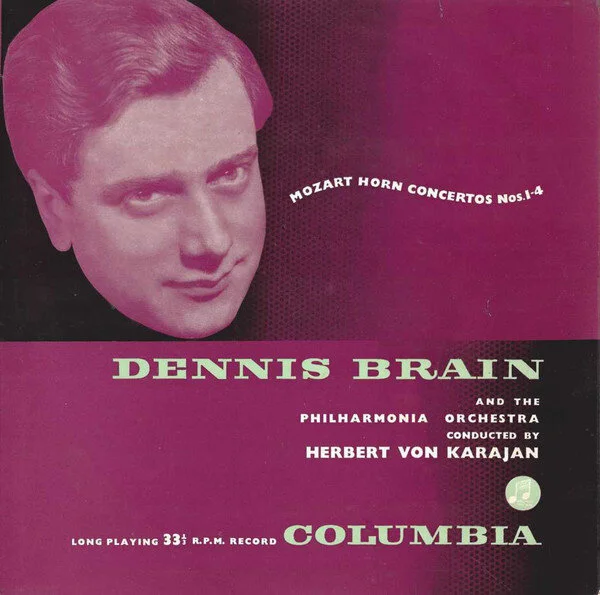Streaming the Classics/The Dream of Gerontius—Elgar
Do you ever type a streaming query in Roon for a classical work and are overwhelmed by the choices? Rather than clicking on any old recording or the first one you see, Audiophilia will make things a little easier for you and do the heavy listening.
These choices are for streaming only. Is the best in streaming also the best vinyl recording and performance? That’s for another article.
A few criteria:
Recording must be on Qobuz and/or Tidal HiFi.
It does not have to be HiRes or MQA.
No more than ten recommendations in no particular order, then my top three for streaming in order of preference.
The Dream of Gerontius was premiered on October 3, 1900 in Birmingham by the great Elgar champion Hans Richter. It was commissioned as part of the Birmingham Triennial festival which had seen such composers as Mendelssohn visit and conduct over fifty years earlier.
Elgar did not envision this work as an oratorio in the Victorian sense of the word and although he allowed the piece to be so described by Novello, his publishers, it soon became apparent this was no ordinary choral work.
The first performance was not a great success and it was only the subsequent performances in Germany that cemented its popularity with the public. Richard Strauss called it a masterpiece and a strong and supportive friendship developed between both men over the ensuing decades.
Gerontius is the journey of the soul to purgatory and Elgar used the texts of Cardinal Newman as inspiration. Newman had been a protestant priest turned Catholic. Elgar, too, struggled with his religion and often sought solace in Newman's thoughts and writings.
It is this deep connection that makes this work so different and also so individual in the style of its presentation and it is this aspect of the work which gives the tenor soloist the opportunity to stamp his individual reading on the part.
Each of the singers we examine here bring their own interpretation to the role and it is also up to the listener to decide which approach he prefers or gives the most satisfaction from a musical and spiritual aspect.
Elgar recorded a ten minute excerpt of Gerontius with the tenor Stuart Wilson but that is all we have of the composer’s own recorded thoughts on the work. Both Wilson and Heddle Nash, who made the first full length recording of the work in 1945, were favourites of Elgar in this role. Heddle Nash does to my mind bring the most spiritual and heartfelt performance to this work that I have yet to hear.
Here are the ten available recordings that I have chosen to survey:
1. Heddle Nash, Gladys Ripley, Denis Noble, Norman Walker. Huddersfield Choral Society. RLPO, Sir Malcolm Sargent [photo above].
This was the first ever complete recording made in 1945 and captures one of Elgar's favourite interpreters of the role of Gerontius. Heddle Nash brings a spirituality to the part that is both touching and ethereal. Sargent uses two singers to perform the male roles of The Priest and the Angel of the Agony which makes this performance unique on record. The intensity of this performance came just as the WW2 had ended and so a feeling of valediction is conveyed both spiritually and musically.
2. John Mitchinson, Janet Baker, John Shirley Quirk. CBSO Chorus, CBSO, Sir Simon Rattle.
Rattle conjures up a fine and dramatic account of the work with excellent performances from all the singers. Janet Baker was probably the leading exponent of the Angel for twenty five years beginning with the Barbirolli recording in 1964. The chorus work is very fine and Mitchinson displays his voice to great effect as does Shirley Quirk. The sound is captured in Birmingham Symphony Hall to great effect.
3. Anthony Rolfe Johnson, Catherine Wyn Rogers, Michael George, Huddersfield Choral Society, Royal Liverpool Philharmonic Choir and Orchestra. Vernon Handley.
EMI reunited the Huddersfield Choral Society and the Royal Liverpool Philharmonic to make this recording in 1993 and a very fine performance it is. Again, the solo singing is first rate and Anthony Rolfe Johnson proves what a fine, intelligent singer he was. Wyn Rogers is radiant and Michael George provides a solid and powerful force.
4. Paul Groves, Sarah Connolly, John Relyea, Dresden Staatskapelle, Dresden Opera Chorus, Sir Colin Davis [photo above].
Paul Groves has two versions of his interpretation of the role of Gerontius, this performance gives us a German orchestral sound and the richness of the Dresden orchestra is certainly worth a listen. Sarah Connolly sings the mezzo role with great authority as does John Relyea.
5. Andrew Staples, Catherine Wyn Rogers, Thomas Hampson. Staatskapelle Berlin, RIAS Kammerchoir, Staatsopernchoir, Daniel Barenboim.
Barenboim favours a more dramatic approach to the work and is supported by some big hitters in the vocal parts. If you are a fan of Barenboim then this will be a performance you will want to have.
6. Nicolai Gedda, Helen Watts, Robert Lloyd, London Philharmonic Choir, New Philharmonia Orchestra, Sir Adrian Boult.
Any Boult performance is worth listening to as he was close to Elgar and was considered one of his most fervent and gifted interpreters. Gedda brings his fine voice and musical intelligence to the role. His diction might be a little different to English ears but the voice compensates for this a lot. Watts and Lloyd are fine and give this performance a strong reason to listen.
7. Peter Pears, Yvonne Minton, John Shirley Quirk, LSO Chorus, Kings College Choir, LSO, Benjamin Britten [photo above].
Britten was not a great Elgar exponent but he gives a finely detailed performance together with Pears who stamps his own personalty on the role. Yvonne Minton sounds a little wild in her singing but Shirley Quirk is on hand to keep the performance strong.
8. Richard Lewis, Dame Janet Baker, Kim Borg, Halle Choir, Halle Orchestra, Sir John Barbirolli.
This is the performance that has survived the test of time and is still considered a classic today. Lewis gives a strong and spiritual account of Gerontius much in the spirit of Heddle Nash and Janet Baker is superb in her singing of the Angel, truly a performance to cherish. Borg is the odd one out and his singing is strong but very woolly in diction. You don't buy this performance for him, however, but for the truly inspirational singing of Baker.
9. Paul Groves, Alice Coote, Bryn Terfel, Halle Choir and Youth Choir, Halle Orchestra, Sir Mark Elder [photo above].
Groves repeats his performance this time with Elder and the Halle forces. It is a clear and detailed account lacking a little in power in comparison with some of the other interpretations but never the less a team of singers and strong power from Terfel make it a close contender.
10. Stuart Skelton, Sarah Connolly, David Soar, BBC Symphony Chorus, BBC Symphony Orchestra, Sir Andrew Davies.
This performance comes from the survey of Elgar's music made by Andrew Davis and the BBC Symphony during his time as principal conductor. It is a very polished account of the work, Connolly is in fine voice and Skelton provides a nuanced performance as Gerontius. David Soar sings well and the performance has a strong sense of purpose.
My top 3
Having listened to all these performances of Gerontius it is not easy to pick three to represent the best versions currently available but it is also very clear that removing the solo singers for a moment, all the versions discussed benefit from fine orchestral and choral performances and Elgar would have been stunned at how his music sounds today under the skilled performers arranged on these recordings.
My three best recordings are in no particular order but start with the Heddle Nash, RLPO, Sargent performance from 1945. Not the best sound but the performance has a conviction, spirituality and sense of purpose that is hard to beat and it is certainly a recording all serous Elgar fans should have in their collection.
My second choice is the Barbirolli, Halle performance from 1964 with Dame Janet Baker giving one of the most sublime interpretations of her career. Barbirolli draws playing and singing from the Halle forces which make this a go to performance and Richard Lewis provides a classic Gerontius.
My final choice gives us an opportunity to hear Janet Baker twenty four years after the Barbirolli recording but with Simon Rattle and a team of singers in the form of John Mitchinson as Gerontius and Shirley Quirk as the Angel of the Agony and The Priest. A team difficult to better.
Rattle gets fine and dramatic performances from his Birmingham players and it is perhaps not by chance that this performance hails from Symphony Hall only a short stroll from Birmingham Town Hall were it all began.
[James sent this along with the review. I thought it would add some context from James and writer, Brian Sibley—Ed]
I had the piece checked for religious accuracy by Brian Sibley the eminent writer and thought you might be interested in his comment about the “a soul” as opposed to “the soul” and also perhaps change the line about the journey to eventual heaven to journey to purgatory.
From Brian Sibley:
I won’t (and, frankly can't) quibble with your comments as a musicologist, but I do have to point out one tiny literary/theological error (!): it is not correct to state: 'Gerontius is the journey of the soul through purgatory to eventual heaven…’.
Firstly (if I may) I’d suggest ‘a soul’ rather than ‘the soul’, as this is the journey of one man’s soul and Newman would have believed that not all such journey’s are alike certainly in the outcome; but, of far greater importance, it is a journey not to ‘eventual heaven’ since the plot of Gerontius ends, following the pleading on his behalf, by the Angel of Agony with Gerontius being judged by God and then conveyed to Purgatory with a blessing and the promise that he will awake in glory. It is more elegantly expressed in this quote about the poem:
Seventh Phase
The Angel asks that the “golden prison open its gates” and allow the soul of Gerontius into the realm of Purgatory. The Angel asks for them to take care of him until the day he is allowed to leave into Heaven at which point the Angel will return to “reclaim it for the courts of light.” The souls in Purgatory recite their mantra stating that the Lord will come for them and that they will wake up the next morning to find themselves filled with the Lord’s mercy and be allowed admittance into Heaven. As the poem comes to an end, the Angel softly releases the Soul of Gerontius, into Purgatory. The Angel tells him that the angels of Purgatory will tend to him and nurse him so he becomes ready to enter Heaven. He offers one last goodbye: “Farewell, but not for ever! brother dear, Be brave and patient on thy bed of sorrow; Swiftly shall pass thy night of trial here, And I will come and wake thee on the morrow.”



